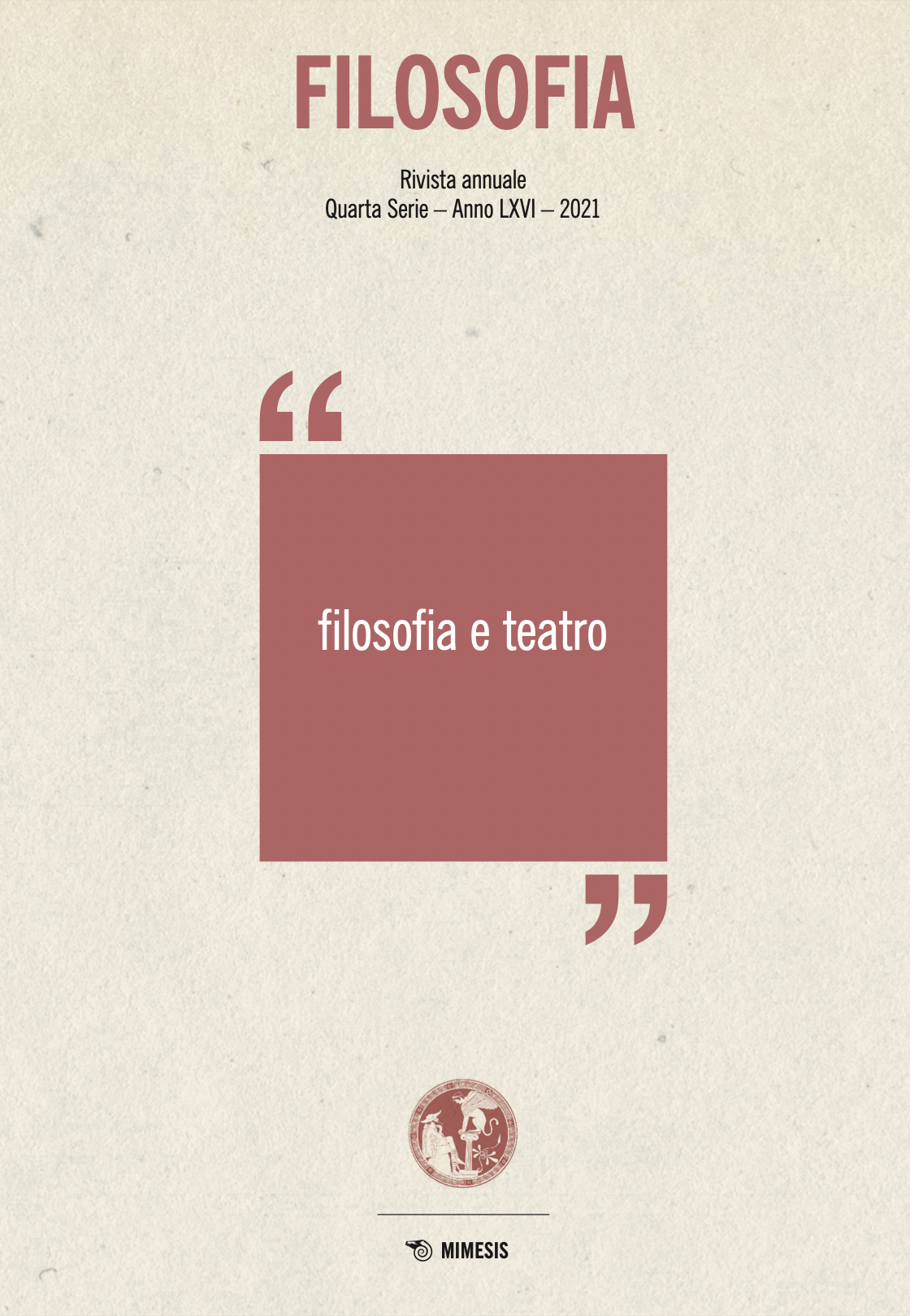Theatrical metaphors and alienation in Michel Foucault’s "History of Madness"
DOI:
https://doi.org/10.13135/2704-8195/6296Keywords:
Foucault, dialectics, alienation, theatrical metaphor, surrealismAbstract
The paper proposes an interpretation of the institution of the asylum in Foucault’s History of Madness as the culmination of a narrative in which the madman appears as a character in various theatrical scenes and settings. According to this reading, the asylum is the place where the representation of the madman’s liberation is staged. Madman’s liberation has a paradoxical aspect in that its counterpart is the loss of identity and autonomous “truth” of madness. However, in the surreal setting of the asylum also emerges the possibility of questioning “otherness” with new awareness. In the background of this interpretation, a speculative reading of Foucault’s work is proposed which highlights the aspects of continuity with Hegelian philosophy.
Downloads
References
Allen, Amy. 1998. “Foucault’s Debt to Hegel” Philosophy Today 42, 1: 71-78.
Angelini, Andrea. 2017. “Il concetto di alienazione tra dialettica e struttura: Foucault, Hyppolite, Althusser” Dianoia. Rivista di filosofia 24: 121-150.
Bodei, Remo. 2014. La civetta e la talpa. Sistema ed epoca in Hegel. Bologna: Il Mulino.
Brossat, Alain, e Lorenzini, Daniele, a cura di. 2021. Foucault et… Les liaisons dangereuses de Michel Foucault. Paris: Vrin.
Butler, Judith. 1999. Subjects of Desire: Hegelian Reflections in Twentieth Century France. New York: Columbia University Press.
Deleuze, Gilles. 2016. L’immagine-movimento. Tr. it. Jean-Paul Manganaro. Torino: Einaudi.
Derrida, Jacques. 1971. Cogito e storia della follia in Derrida, Jacques, La scrittura e la differenza, 39-79. Tr. it. Gianni Pozzi. Torino: Einaudi.
Eribon, Didier. 1991. Michel Foucault. Tr. it. A. Buzzi. Milano: Leonardo Editore.
Foucault, Michel. 1988. Questa non è una pipa. Tr. it. Roberto Rossi. Milano: SE.
Foucault, Michel. 1999. Archeologia del sapere. Una metodologia per la storia della cultura. Tr. it. Giovanni Bogliolo. Milano: Rizzoli.
Foucault, Michel. 1997. “Theatrum Philosophicum” aut aut 277-278: 54-74.
Foucault, Michel. 2009. Le parole e le cose. Un’archeologia delle scienze umane. Tr. it. Emilio Panaitescu. Milano: Rizzoli.
Foucault, Michel. 2010. Storia della follia nell’età classica: con l’aggiunta di “La follia, l’assenza di opera” e “Il mio corpo, questo foglio, questo fuoco”. Tr. it. Franco Ferrucci. Milano: BUR Saggi.
Foucault, Michel. 2012. L’ordine del discorso e altri interventi. Tr. it. Alessandro Fontana, Mauro Bertani, Valeria Zini. Torino: Einaudi.
Foucault, Michel. 2019. Folie, langage, literature. Paris: Vrin.
Garelli, Gianluca. 2010. Lo spirito in figura. Il tema dell’estetico nella “Fenomenologia dello spirito” di Hegel. Bologna: Il Mulino.
Giuliani, Alice. 2021. “Dialectics of Madness: Foucault, Hegel, and the Opening of the Speculative” in The Owl’s Flight: Hegel’s Legacy to Contemporary Philosophy, edited by Stefania Achella, Francesca Iannelli, Gabriella Baptist, Serena Feloj, Fiorinda Li Vigni and Claudia Melica, 127-138. Berlin, Boston: De Gruyter.
Hegel, Georg Wilhelm Friedrich. 2008. La fenomenologia dello spirito. Tr. it. Gianluca Garelli. Torino: Einaudi.
Hyppolite, Jean. 1999. Genesi e struttura della Fenomenologia dello spirito di Hegel. Tr. it. Gian Antonio De Toni. Firenze: La Nuova Italia.
Lorenzini, Daniele, e Sforzini, Arianna. 2013. Introduction. L’Histoire de la folie dans l’œuvre de Foucault, in Un demi-siècle de L’Histoire de la folie, Lorenzini, Daniele, a cura di. Paris: Éditions Kimé.
Sforzini, Arianna. 2017. Les scènes de la vérité. Michel Foucault et le théâtre. Paris: Bord de l’eau.
Siti, Walter. 2013. Il realismo è l’impossibile. Italia: Nottetempo.
Veyne, Paul. 1998. Michel Foucault: la storia, il nichilismo e la morale. Tr. it. Massimiliano Guareschi. Verona: Ombre Corte.



